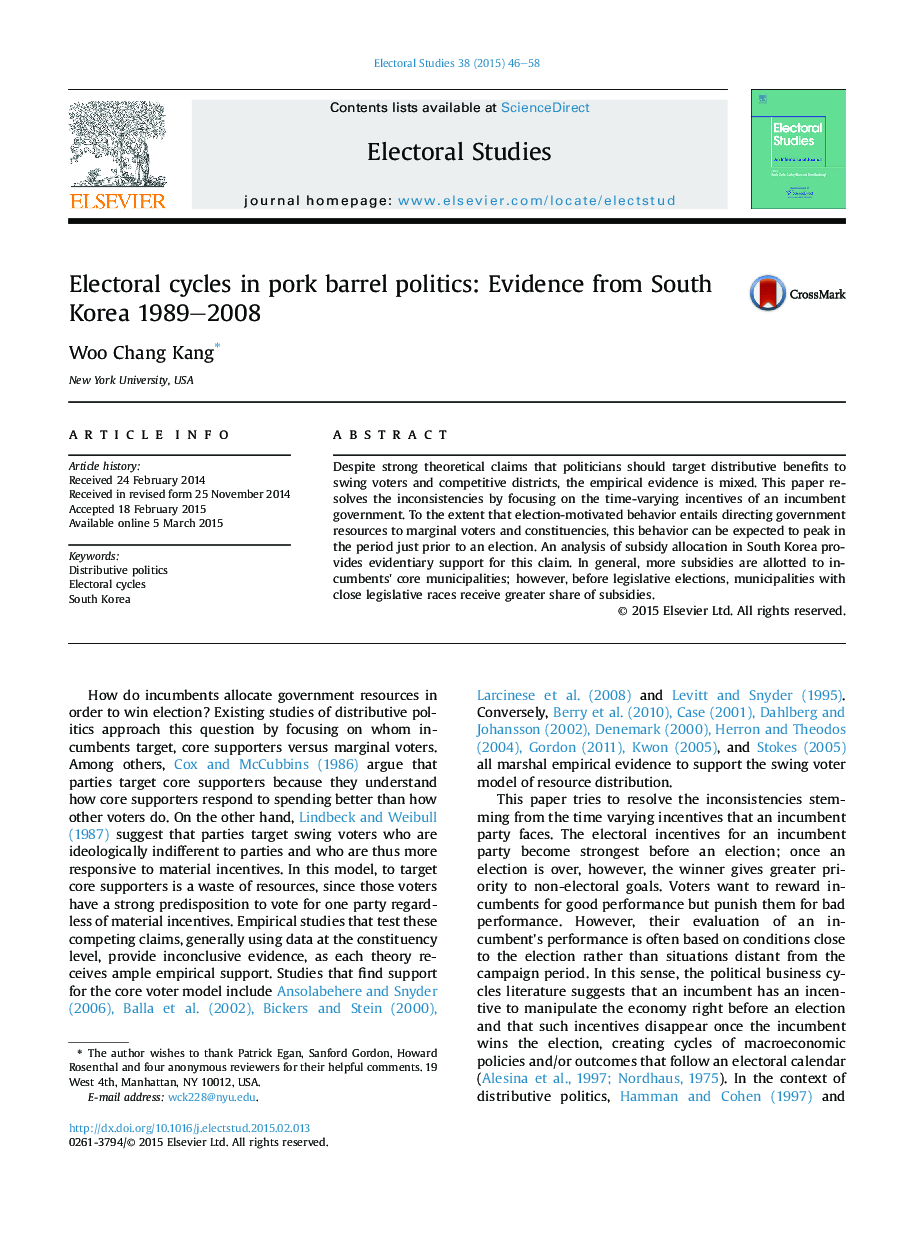| Article ID | Journal | Published Year | Pages | File Type |
|---|---|---|---|---|
| 1051707 | Electoral Studies | 2015 | 13 Pages |
•We present a theory of pork barrel cycle.•An incumbent caters to his core supporters when election is far.•He targets electorally more influential voters when election is imminent.•We tests this theory in South Korea between 1989 and 2009.•Voters with close legislative races are targeted only before legislative elections.
Despite strong theoretical claims that politicians should target distributive benefits to swing voters and competitive districts, the empirical evidence is mixed. This paper resolves the inconsistencies by focusing on the time-varying incentives of an incumbent government. To the extent that election-motivated behavior entails directing government resources to marginal voters and constituencies, this behavior can be expected to peak in the period just prior to an election. An analysis of subsidy allocation in South Korea provides evidentiary support for this claim. In general, more subsidies are allotted to incumbents' core municipalities; however, before legislative elections, municipalities with close legislative races receive greater share of subsidies.
